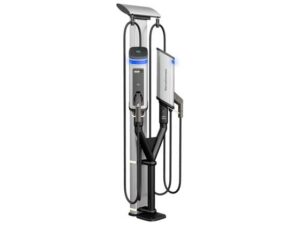Do car batteries have warranties? The answer is a resounding yes! When it comes to car maintenance, a reliable warranty can bring immense peace of mind. Whether you’re hitting the road for a long journey or simply commuting to work, a dead battery is the last thing you want to deal with. That’s why understanding car battery warranties and what they cover is essential. In this article, we will delve into the world of car battery warranties, exploring what you need to know to protect your investment and keep your vehicle running smoothly. So, let’s dive right in!
Do Car Batteries Have Warranties?
Car batteries are an essential component of a vehicle’s electrical system. They provide the necessary power to start the engine, operate the lights, and power various accessories. Like any other product, car batteries can sometimes fail due to manufacturing defects or premature wear and tear. That’s where warranties come into play, providing consumers with peace of mind and protection against unexpected battery failures. In this article, we will explore the topic of car battery warranties in detail, answering common questions and shedding light on the different aspects of warranty coverage.
Understanding Car Battery Warranties
Car battery warranties are essentially guarantees provided by the manufacturer or seller, assuring the buyer that the battery will perform as expected for a certain duration. Warranties can vary between different battery brands, models, and sellers, so it’s crucial to understand the specifics of each warranty before making a purchase. Here are some key points to consider:
1. Duration of Warranty: Car battery warranties typically range from one to five years, but this can vary depending on the brand and model. It’s important to check the warranty period offered by the battery manufacturer or seller before making a purchase.
2. Pro-rated Warranties: Some car batteries come with pro-rated warranties, which means that the coverage decreases over time. For example, a battery might be covered 100% for the first two years and then offer a decreasing percentage of coverage for subsequent years. Pro-rated warranties are common in batteries with longer warranty periods.
3. Conditions for Warranty: Manufacturers often have specific conditions that must be met for the warranty to be valid. These conditions may include regular maintenance, proper installation, and usage within specified temperature ranges. It’s important to familiarize yourself with these conditions and adhere to them to avoid voiding the warranty.
4. Prorated Replacement Costs: If a battery fails within the warranty period, some warranties may cover the cost of a replacement battery partially or in full, depending on the remaining coverage. However, there may be additional charges such as labor costs or shipping fees that are not covered by the warranty.
Types of Car Battery Warranties
Car battery warranties can be categorized into different types based on the coverage they offer. Here are the most common types of warranties you might come across:
1. Free Replacement Warranty: This type of warranty offers a free replacement of the battery within a specified period if it fails. Usually, the warranty covers the full cost of a replacement battery, excluding any associated labor or shipping charges.
2. Prorated Warranty: A prorated warranty provides a partial refund or credit towards a replacement battery based on the remaining warranty period. As the battery ages, the coverage decreases, and the customer may be responsible for a portion of the replacement cost.
3. Manufacturer’s Warranty: Many car battery manufacturers offer their own warranties, which can vary in terms of coverage and duration. These warranties are often backed by the reputation and reliability of the manufacturer.
4. Extended Warranty: Some sellers or retailers offer extended warranties for car batteries, which provide additional coverage beyond the standard warranty period. Extended warranties can be purchased alongside the battery and offer peace of mind for an extended duration.
Factors Affecting Car Battery Warranty
Car battery warranties can be influenced by various factors, and it’s important to understand them to make an informed decision. Here are a few factors that can affect car battery warranties:
1. Maintenance: Regular maintenance of the battery, including keeping it clean, checking fluid levels (if applicable), and ensuring proper charging, can help maximize its lifespan and maintain warranty coverage.
2. Installation: Proper installation of the battery is crucial for ensuring warranty coverage. If the battery is not installed correctly, it can lead to premature failure and void the warranty. It’s recommended to have the battery installed by a professional or follow the manufacturer’s guidelines carefully.
3. Extreme Conditions: Car batteries are designed to operate within specific temperature ranges. Subjecting the battery to extremely high or low temperatures can reduce its lifespan and potentially void the warranty. It’s important to store the battery properly and avoid exposing it to extreme conditions.
4. Usage: Excessive use of electrical accessories when the engine is not running can put a strain on the battery and shorten its lifespan. It’s important to avoid running the battery down frequently and recharge it promptly when necessary.
Warranty Claim Process
In the unfortunate event of a battery failure within the warranty period, it’s important to know the steps involved in making a warranty claim. While the specific process may vary depending on the manufacturer or seller, here are some general steps to follow:
1. Document the Issue: Take note of the symptoms or issues you are experiencing with the battery. This will help when explaining the problem to the manufacturer or authorized service center.
2. Check Warranty Terms: Review the warranty documentation to ensure that the failure is covered by the warranty and that you meet all the necessary conditions.
3. Contact the Manufacturer or Seller: Reach out to the manufacturer or seller to initiate the warranty claim. They will provide guidance on the next steps, which may include visiting an authorized service center or shipping the battery for inspection.
4. Follow the Instructions: Follow the instructions provided by the manufacturer or authorized service center for returning the battery or scheduling an inspection. This may involve completing a warranty claim form, providing proof of purchase, and any other required documentation.
5. Assessment and Resolution: Once the battery is inspected, the manufacturer or authorized service center will determine if it qualifies for a warranty replacement or repair. If eligible, they will provide a replacement battery or repair the existing one accordingly.
6. Additional Costs: It’s important to be aware that some warranty claims may have associated costs, such as labor charges, shipping fees, or costs for additional parts or services not covered by the warranty. Clarify with the manufacturer or service center if there are any additional charges involved.
Car battery warranties play a vital role in protecting consumers against unexpected battery failures. Understanding the different types of warranties, their coverage, and the factors that can affect warranty claims is crucial when purchasing a car battery. By familiarizing yourself with the warranty terms and following the proper maintenance and usage guidelines, you can maximize the lifespan of your car battery and ensure that it remains covered under warranty. Remember to always consult the manufacturer’s documentation and contact the appropriate channels for warranty claims to resolve any battery-related issues.
Frequently Asked Questions
What is the warranty period for car batteries?
The warranty period for car batteries can vary depending on the manufacturer and the type of battery. Typically, most car batteries come with a warranty ranging from 1 to 3 years. Some manufacturers may offer longer warranties, especially for high-performance or premium batteries.
What does a car battery warranty cover?
A car battery warranty usually covers defects in materials and workmanship. This means that if your battery fails due to a manufacturing defect within the warranty period, the manufacturer will replace it free of charge. However, it’s important to note that warranties generally do not cover damage caused by improper installation, neglect, or normal wear and tear.
Are car battery warranties transferable?
Car battery warranties are typically non-transferable. This means that the warranty coverage only applies to the original purchaser of the battery and may not be transferred to a new owner if the vehicle is sold. It’s always a good idea to check the terms and conditions of the warranty to understand the specific details regarding transferability.
What should I do if my car battery fails within the warranty period?
If your car battery fails within the warranty period, you should contact the manufacturer or the authorized dealer from where you purchased the battery. They will guide you on the next steps to take, which may include providing proof of purchase, submitting a warranty claim, and potentially getting a replacement battery.
Can I extend the warranty for my car battery?
Some manufacturers may offer extended warranty options for car batteries. It’s recommended to inquire with the manufacturer or authorized dealers about any available extended warranty plans. Keep in mind that extending the warranty may involve additional costs, so it’s important to weigh the benefits against the expenses before making a decision.
Final Thoughts
Car batteries can come with warranties that offer protection against defects and malfunctions. These warranties typically vary in duration and coverage, ranging from a few months to several years. When purchasing a car battery, it is essential to check the warranty terms and conditions to understand the extent of coverage it provides. In case of any issues, the warranty allows car owners to get their batteries repaired or replaced at no additional cost. Therefore, before making a decision, it is crucial to consider the warranty offered by the manufacturer to ensure peace of mind and reliable performance for your vehicle. So, do car batteries have warranties? Yes, they do!



